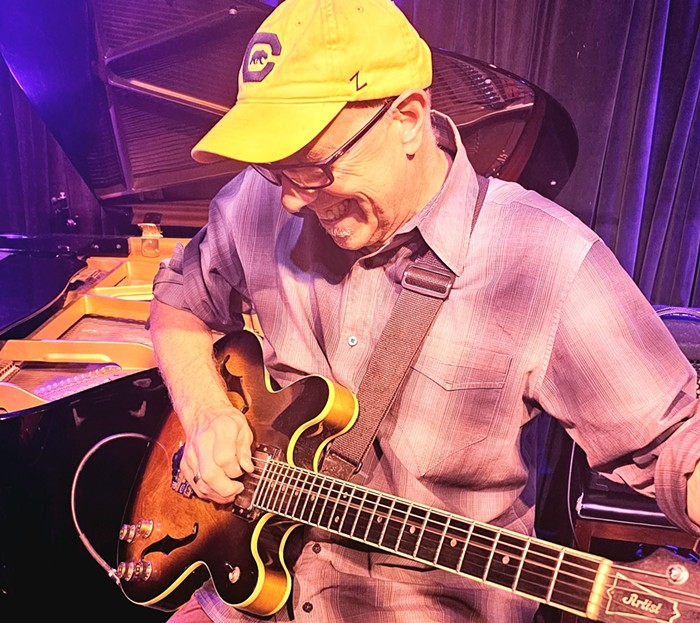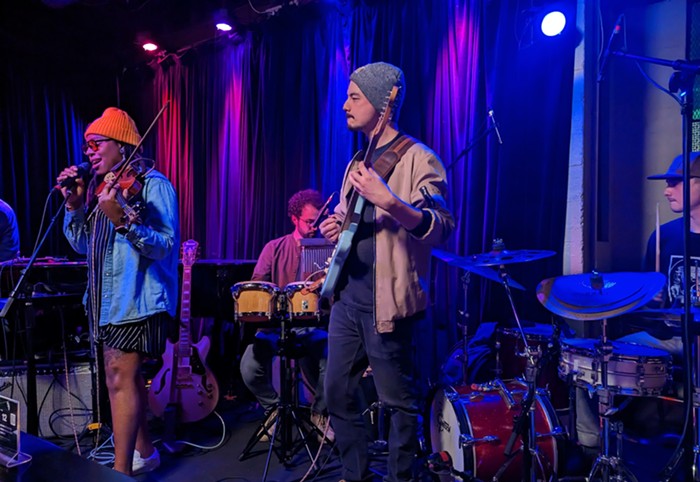JULIA HOLTER travels through her music. "There are a lot of different settings for each of my songs," she says. "I like to travel that way a lot—traveling through the mind to different atmospheres. I usually describe my songs as each having their own environment."
"My first thought was there are so many days of rain in Mexico City," the LA songwriter sings on "Feel You," the exquisite, Beach House-esque track that opens her 2015 release Have You in My Wilderness. "A good reason to go/You know I love to run away from sun."
Songs like "Feel You" and album highlight "Sea Calls Me Home" feature chiming harpsichord ("It's just a setting on my digital piano," Holter admits). The harpsichord and the heavy string arrangements on tracks such as "How Long?" give the album—Holter's second for Domino Records—a distinctly baroque-pop vibe.
"I don't feel like I have a truly in-depth and personal understanding of classical music," Holter says. "Any indications in my music that it is an influence are not conscious. Certain progressions just come out of my hands in the most mechanical way. In retrospect, it's true that my harmonies tend to be 'traditionally' classical—not super dense, or dissonant, or complex vertically as chords."
Along with its neo-classical flourishes, Wilderness brings to mind certain '60s-era art-pop. On "How Long?" Holter affects a lugubrious, Nico-style flatness to her tone when she sings, "Things close early/It's a holiday they tell me... Do you know the proper way to ask for a cigarette?" Much of the record's largely keyboard-based music has a dreamy feel, like a pianist closing down a Berlin hotel bar, singing to a handful of lonely patrons who are far away from home.
On the psychedelic "Vasquez," Holter whisper-speaks the lyrics in a tripped-out monotone over electronic bleeps, bloops, and avant-garde keyboard noodling. And in the nautically atmospheric "Lucette Stranded on the Island," Holter swims languidly in a swirling swell of strings. "Sea Calls Me Home" boasts a charming whistle interlude and an exuberantly experimental sax solo.
"I like the darker side of that kind of European pop sound," Holter says. "Like Nico or like Brigitte Fontaine. I love how certain songs can transport you and suddenly everything feels like it's a film. I always have a lot of layers, and for this record I wanted those layers wrapped in a warmth and a fog."
Alongside the atmosphere of cinematic '60s pop chanteuses, Wilderness has the precise, just-so, immaculate quality of that era's great pop producers, like Serge Gainsbourg, Phil Spector, and George Martin.
"I think that was the vibe of this record for sure," Holter says. "I wasn't totally aware of it until I was done, but it's clear that was what I was trying for."
She continues, "This was a record that—unlike a lot of my records in the past and probably the future as well—worked in a specific kind of musical tradition, in which a song tells a familiar tale of love. And people can get lost in it and feel it is their song."


















